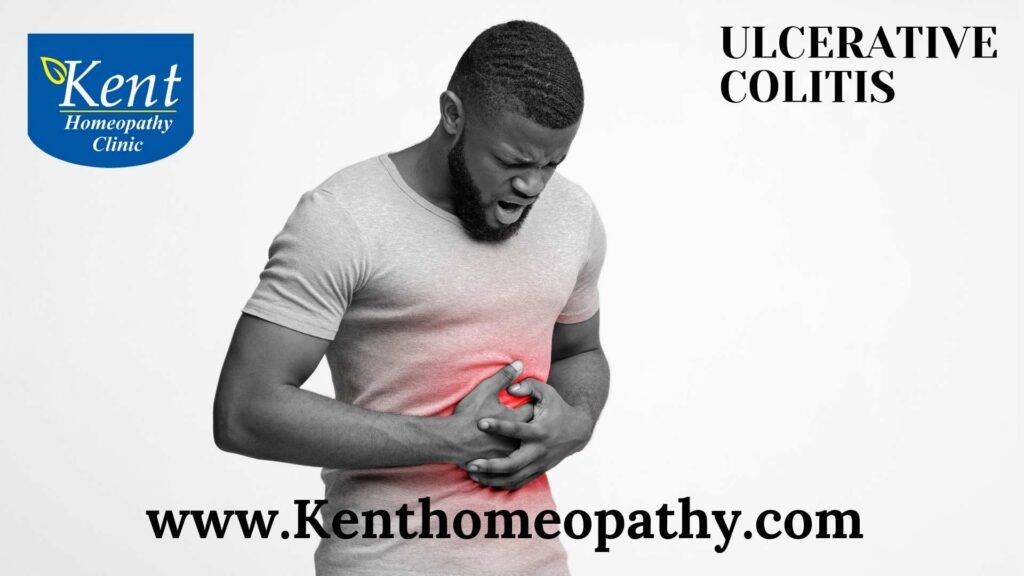Ulcerative colitis

Ulcerative Colitis: Unraveling Symptoms, Causes, and Types
Ulcerative colitis (UC) is a chronic inflammatory bowel disease (IBD) characterized by inflammation and ulcers in the lining of the colon and rectum. This condition leads to a range of symptoms and can have a significant impact on a person’s quality of life. Understanding the symptoms, causes, and types of ulcerative colitis is crucial for diagnosis and effective management.
Symptoms:
- Diarrhea:
– Persistent diarrhea is a hallmark symptom of ulcerative colitis. The urgency to have bowel movements and the frequent passage of loose, bloody stools are common.
- Abdominal Pain and Cramping:
– Abdominal pain and cramping often accompany ulcerative colitis. The severity can vary, and the pain is typically located in the lower abdomen.
- Rectal Bleeding:
– Bleeding from the rectum is a common symptom. Blood may be visible in the stool or on toilet paper, and the severity can range from mild to significant.
- Weight Loss:
– Chronic inflammation and diarrhea can lead to weight loss and malnutrition. Individuals with ulcerative colitis may experience a decrease in appetite.
- Fatigue:
– Persistent inflammation and the body’s response to the disease can result in fatigue and a general feeling of weakness.
- Fever:
– Some individuals may experience fever, particularly during periods of active inflammation. Fever is the body’s response to the inflammatory process.
- Joint Pain:
– Joint pain or arthritis can occur as an extraintestinal manifestation of ulcerative colitis, affecting the joints, particularly the knees.
- Eye and Skin Issues:
– Inflammation associated with ulcerative colitis can extend beyond the digestive tract, leading to eye inflammation (uveitis) or skin problems.
Causes:
- Immune System Dysfunction:
– The exact cause of ulcerative colitis is not fully understood, but it is believed to involve an abnormal immune response. The immune system mistakenly attacks the cells of the colon and rectum, leading to inflammation.
- Genetic Factors:
– There is evidence of a genetic predisposition to ulcerative colitis. Individuals with a family history of IBD have a higher risk of developing the condition.
- Environmental Factors:
– Environmental factors, such as diet, may play a role in triggering or exacerbating ulcerative colitis. However, no specific dietary factor has been conclusively identified as a sole cause.
- Dysbiosis of Gut Microbiota:
– Alterations in the balance of gut microbiota (dysbiosis) have been implicated in the development of ulcerative colitis. Disruptions in the normal composition of intestinal bacteria may contribute to inflammation.
- Autoimmune Response:
– Ulcerative colitis is considered an autoimmune disease, where the immune system mistakenly attacks the body’s own tissues. The colon becomes a target of immune-mediated inflammation.
Types:
- Ulcerative Proctitis:
– Ulcerative proctitis is the mildest form of ulcerative colitis and primarily affects the rectum. Symptoms may include rectal bleeding, urgency, and tenesmus (the feeling of needing to pass stool even when the rectum is empty).
- Proctosigmoiditis:
– Proctosigmoiditis involves inflammation of the rectum and the sigmoid colon (the lower part of the colon). Symptoms include bloody diarrhea, abdominal cramps, and tenesmus.
- Left-sided Colitis:
– Left-sided colitis affects the rectum, sigmoid colon, and the descending colon (the left side of the colon). Symptoms can extend to include weight loss, fatigue, and abdominal pain.
- Pancolitis:
– Pancolitis involves inflammation of the entire colon. Symptoms can be severe, including bloody diarrhea, abdominal cramps, fatigue, and weight loss.
- Fulminant Colitis:
– Fulminant colitis is a severe and rare form of ulcerative colitis that can lead to life-threatening complications. It often involves the entire colon and requires urgent medical intervention.
- Chronic Continuous Colitis:
– Chronic continuous colitis is characterized by persistent inflammation without periods of remission. This form of ulcerative colitis may require ongoing medical management.
Contact to know more
Contact
Timings
Monday to Saturday:
11:00 AM to 02:30 PM
06:30 PM to 09:00 PM
